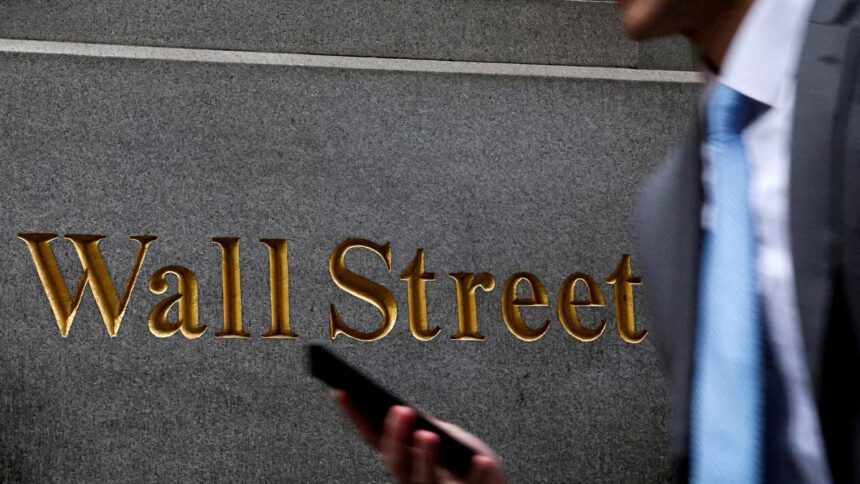A prolonged period of stability on Wall Street was disrupted on Friday, with U.S. stocks taking a significant downturn after President Donald Trump indicated plans to raise tariffs on China. The S&P 500 experienced a 2.7 percent drop, marking its worst performance since April, while the Dow Jones Industrial Average fell by 878 points or 1.9 percent, and the Nasdaq composite decreased by 3.6 percent.
Initially, stocks were poised for modest gains in the morning until Trump announced via social media that he was contemplating “a massive increase of tariffs” on imports from China. His frustration stemmed from Chinese restrictions on exports of rare earth elements, materials essential for the manufacturing of various consumer goods and aircraft components.
“We have been contacted by other countries who are extremely angry at this great trade hostility, which came out of nowhere,” Trump stated on Truth Social. He also expressed that “now there seems to be no reason” to meet with China’s leader, Xi Jinping, a plan that had been agreed upon earlier as part of an upcoming visit to South Korea.
Big Tech Leads Selloff
The increasing tensions between the two largest economies in the world resulted in widespread declines on Wall Street, with about six out of every seven stocks in the S&P 500 falling. The selloff affected a broad range of companies, from major tech firms like Nvidia and Apple to smaller entities grappling with the uncertainty surrounding trade and tariffs.
Market analysts suggested that the conditions were ripe for a decline, as U.S. stocks faced scrutiny over inflated valuations following the S&P 500’s nearly uninterrupted 35 percent rally since April. While the index is still near its all-time high set earlier in the week, critics argue that stock prices have surged faster than corporate profits. Concerns are especially pronounced within the artificial intelligence sector, as some investors draw parallels to the implosion of the dot-com bubble in 2000.
Levi Strauss, despite reporting stronger-than-expected quarterly profits, saw its stock drop by 12.6 percent. This decline may reflect heightened expectations after a near 42 percent increase in its stock price this year.
Overall, the S&P 500 fell by 182.60 points to 6,552.51, the Dow Jones Industrial Average decreased by 878.82 points to 45,479.60, and the Nasdaq composite fell by 820.20 points to 22,204.43.
Oil and Bonds React Sharply
The oil market also saw significant movement on Friday, with the price of benchmark U.S. crude dropping by 4.2 percent to $58.90 per barrel. This decline followed a ceasefire agreement between Israel and Hamas, which alleviated concerns over potential disruptions to oil supplies.
Market losses accelerated after Trump’s tariff announcement, heightening fears that increased trade barriers could dampen global economic activity and reduce fuel consumption. Brent crude, the international benchmark, decreased by 3.8 percent to $62.73 per barrel.
In the bond market, the yield on the 10-year Treasury note dropped to 4.05 percent from 4.14 percent following a report from the University of Michigan indicating that consumer sentiment remains weak.
“Pocketbook issues such as high prices and weakening job prospects are uppermost in consumers’ minds,” noted Joanne Hsu, director of the Surveys of Consumers. “At this time, consumers do not expect meaningful improvement in these factors.”
The job market has showed signs of slowdown, prompting the Federal Reserve to cut its main interest rate last month for the first time this year. Fed officials have anticipated further cuts throughout next year to provide the economy with additional support, although Chair Jerome Powell cautioned that the direction could shift if inflation remains elevated. Lower interest rates have the potential to exacerbate inflationary pressures.
A potentially encouraging finding from the University of Michigan survey revealed that consumers’ inflation expectations for the upcoming year slightly decreased to 4.6 percent from 4.7 percent the prior month, indicating a possible positive shift in consumer sentiment concerning inflation.
Global Markets Join the Fall
International markets also reflected the declines seen in the U.S. stock exchanges, with indexes mostly decreasing across Europe and Asia. Hong Kong’s Hang Seng index dropped by 1.7 percent, while France’s CAC 40 fell by 1.5 percent. However, South Korea’s Kospi index rose by 1.7 percent after trading resumed following a holiday.
Published on October 11, 2025.










